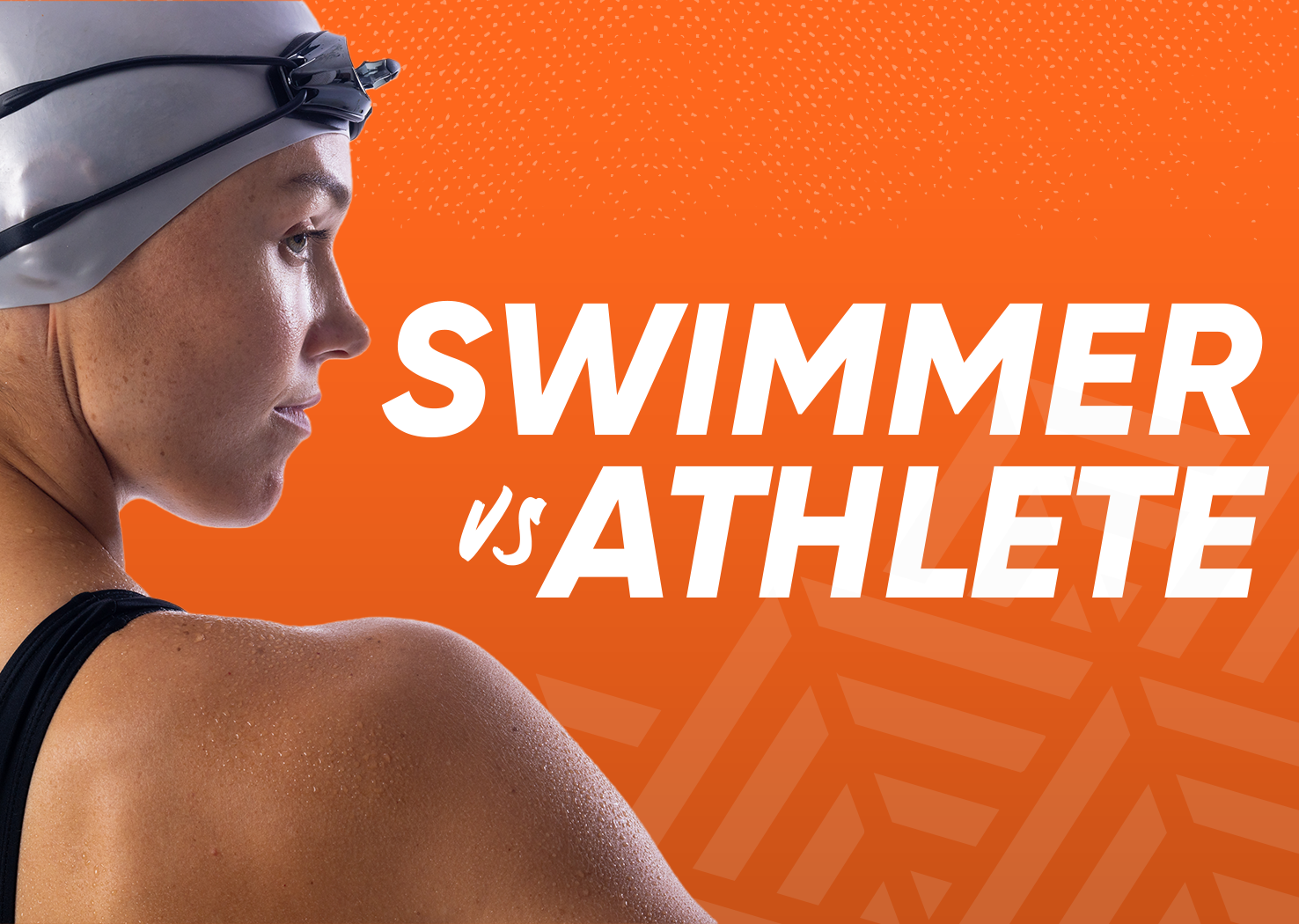Blog

Swimmer vs Athlete
Perhaps this is an obvious statement, but there is a difference between being a swimmer and being an athlete.
A swimmer is a type of athlete—one who competes in the sport of swimming. However, just because you swim, it doesn’t mean you are automatically an athlete. For example, many people go to the pool for fitness, fun, or to socialize; so, what’s the difference?
When you first entered the sport of swimming, maybe you immediately had goals of becoming an Olympic Champion one day, but more likely, you started with regular lessons. You enjoyed swimming before progressing to competitive swimming and aspiring to race and train. A few sessions a week and regular competitions across a year meant progression was easy as you learned, grew taller and stronger, and developed your understanding of strokes and how to race events. Things that once seemed like an impossible task started to become everyday habits. Goals became bigger and because of this, more factors came into play.
Young swimmers starting their sporting journeys have very little to think about with swimming. Most of what is needed from them is simple. Consistently attend training and increase their understanding of swimming and how to move their body through the water. They rely heavily on their parents for support, for transport, and for planning the logistics of their days, weeks, and years, and of course, for financial support. The role of being an athlete is split between many people; swimmers, parents, and coaches.
As you grow through the sport, the ownership shifts. What was once a simple hobby becomes a commitment to improving. The idea of swimming becoming a sport is clear and an awareness of external influences starts to develop. These external influences will ultimately shape your athletic journey and the transition from being a swimmer to becoming an athlete will ultimately hinge on these factors. Your recovery strategies and how much you value sleep, nutrition and mobility. Your mental skills and how you utilize self-talk and visualisation to improve your race and training performance. Your time management skills and how effectively you use your time to complete schoolwork helping to maintain a balance between academics and sport.
The team dynamics in the role of swimmer, parent and coach become more defined. The progress relies heavily on the swimmer. Simply turning up to training no longer results in improvement. What you do with your time in the sessions and outside the sessions becomes equally important. The coach is there to provide the sessions, hold swimmers accountable for working at the correct intensities and educate the swimmer in all aspects of sport. Parents are still relied upon for support in many ways; nutritional, financial and most importantly, emotionally and mentally.
This can often be a point of frustration for parents and coaches. The accountability cannot be shared as equally as it used to. Not sleeping enough will diminish recovery and can lead to injury, illness and burnout. Not eating enough or not eating nutritious meals can also minimise recovery, cause illness and reduce strength. Not training at the correct intensity (be it too fast or too slow) will limit improvement. Whilst parents and coaches are there to guide, educate and hold swimmers accountable for their actions and goals, the transition to an athlete is complete once the swimmer accepts full ownership of the variables they can control. Knowing and trusting that repetition of daily habits, good or bad, will ultimately shape their future and goals in the sport of swimming.
So how do you know when you’ve become an athlete?
• A deep understanding of what it takes the individual to improve.
• A willingness to make decisions based on long-term goals rather than immediate gratification.
• A selfish streak towards personal improvement.
• A confidence in being a role model for younger athletes to aspire to become.
Once you fully understand what it takes to be the best and accept responsibility for your own journey, only then can you consider yourself an athlete.

